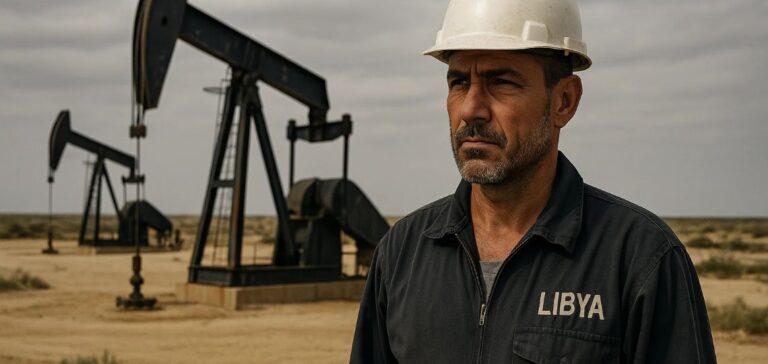The National Oil Corporation (NOC), Libya’s state-owned company responsible for managing hydrocarbons, is launching an international roadshow on 17 April in Istanbul, Turkey. This promotional campaign marks the first stage of a series of presentations designed to showcase 22 onshore and offshore oil blocks. It is the country’s first bidding round in seventeen years, aimed at attracting foreign investment to support national production growth.
Production target and financial mobilisation
The NOC has set a target of raising daily crude output to 2 million barrels, up from 1.38 million recorded at the end of March 2025. To meet this objective, the company estimates it will require $17 billion (approximately €15.9bn) over a three- to five-year period. The plan focuses on upgrading existing infrastructure, reviving exploration campaigns and securing production flows, as oil still represented 39% of Africa’s proven reserves in 2022.
Itinerary and economic stakes
Following Istanbul, the Libyan delegation will travel to London in the United Kingdom, and later to Houston in the United States. At each stop, NOC representatives will present the geological features of the available blocks, the contractual conditions and associated economic prospects. This initiative forms part of a broader strategy to revitalise public finances, which remain heavily reliant on oil revenues, in a context of continuing institutional fragility.
Political risk and investor arbitration
The fall of Muammar Gaddafi in 2011 and ongoing internal political divisions continue to weigh on Libya’s energy investment environment. However, by focusing on technical data transparency and direct engagement with international stakeholders, the NOC aims to restore trust and strengthen its presence in the global crude market. The market’s response to this international campaign remains to be seen, in a climate where decisions are shaped as much by geological promise as by institutional stability.






















